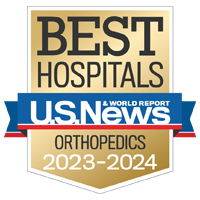Early Osteoarthritis

Overview
Early osteoarthritis, also known as mild or stage 1 osteoarthritis, is the initial phase of the most common form of arthritis. Osteoarthritis occurs when cartilage, the cushioning tissue in joints, starts to break down causing pain in the joint. Eventually, this cushioning tissue can break down enough to allow the bones to rub against each other. The condition can affect any joint, but it most frequently affects the hands, shoulders, knees, hips and spine.
In early osteoarthritis, the cartilage loss isn't yet enough to produce structural changes, such as bones spurs or reduced space in the joints, that can be seen on X-rays or other imaging tests. Nevertheless, you may have mild symptoms, such as occasional pain, stiffness or swelling in a joint, particularly after a lot of activity or, conversely, after you've been inactive for a while.
The risk for developing osteoarthritis increases as you get older, especially after age 50. Women are at greater risk than men, as are people who are obese, have a history of joint injury, or have a family history of arthritis.
While there aren't yet any effective treatments to stop the disease or reverse the damage, we can manage the symptoms and slow its progression.
Our approach to early osteoarthritis
When treating early osteoarthritis, our goals are to relieve pain and help you stay active. Our team of orthopedic specialists has expertise in a range of nonsurgical techniques, including medications, injections and physical therapy.
Awards & recognition
-

Among the top hospitals in the nation
-

One of the nation's best for orthopedic care
Signs & symptoms
Osteoarthritis is mainly caused by the wear and tear of aging, which is why it's most common in people over 50. But it can also develop after an injury or fall damages a joint.
Symptoms of early osteoarthritis may include:
- Mild pain in affected joints, during or after movement
- Stiffness first thing in the morning or after a period of inactivity
- Deceased range of motion in the joint
- Swelling caused by inflamed soft tissue around the joint
Diagnosis
When the disease hasn't progressed enough to create changes that will show up on X-rays, we make the diagnosis based on your symptoms and a physical exam.
Treatment
Treatment for early osteoarthritis may include lifestyle modifications, such as weight loss and exercise, as well as physical therapy to reduce stress on the affected joint by improving flexibility and strength. Over-the-counter medications, such as acetaminophen (Tylenol) or ibuprofen (Advil, Motrin), can help relieve pain. We may also recommend prescription medications or steroid (cortisone) injections into the affected joint.
Another therapy that can help is an injection of platelet-rich plasma (PRP), which involves using the patient's own platelets to decrease inflammation. For this treatment, a small amount of blood is drawn from the patient. The platelets are then separated from other blood cells using a centrifuge and injected into the injured or arthritic area. There's growing evidence that PRP injections can reduce inflammation and improve symptoms in early cases of osteoarthritis.
If none of these approaches brings relief, joint replacement surgery may be warranted, usually when the arthritis is more severe.
UCSF Health medical specialists have reviewed this information. It is for educational purposes only and is not intended to replace the advice of your doctor or other health care provider. We encourage you to discuss any questions or concerns you may have with your provider.





